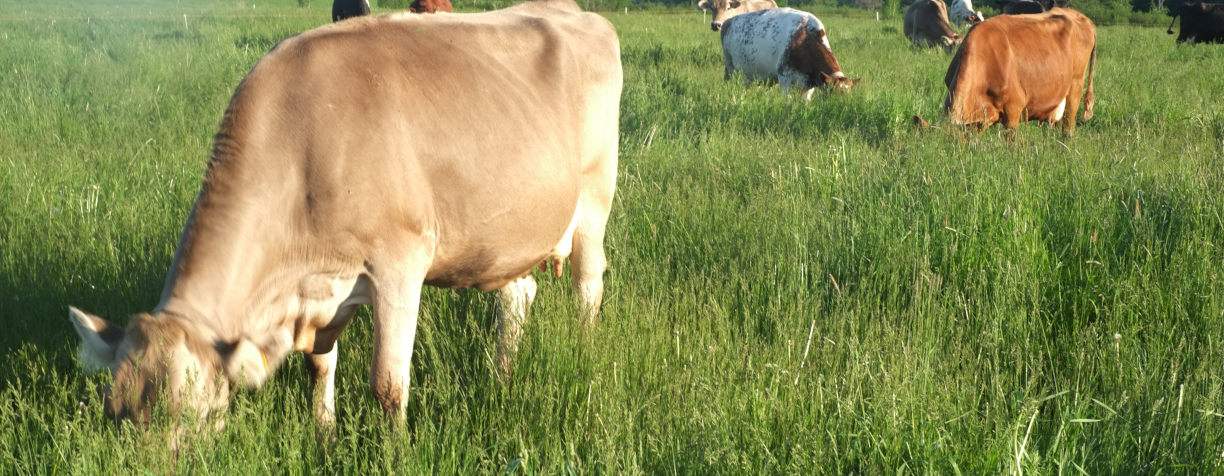Peggy Keyser
NBC News Center Maine
FREEPORT, Maine — Tierney Lawlor didn't have much experience with dairy cows, but that didn't stop her from applying to the Wolfe's Neck Center Organic Dairy Farmer Apprentice Training program when she discovered it in her job search. She had worked on a horse farm in high school and studied agriculture in college, but had no experience with cows.
As an apprentice in this program, she is immersed in every aspect of dairy farming. “The amount of opportunities in terms of learning machines, and animals, and just the little ‘knick knacky’ things – it’s invaluable. It was a no-brainer for me to make the move,” she says.
For the cows, the rhythm is simple: twice a day, they’re herded to the barn, where they eat, get milked, and then return to the pasture. But the care, the feeding, the technology – all that goes in to producing organic milk from these cows - is anything but simple.
The program is the first of its kind in the country, a partnership between Stonyfield Yogurt and Wolfe’s Neck, and part of a national effort to train our future farmers.
Dave Herring, executive director at Wolfe's Neck Center says, “It’s an intensive type of farming that requires training ..you can’t just wake up one day and say ‘I wanna be a dairy farmer’ – there’s a path to that farm ownership or farm operation and we’re helping to illuminate that path with the program here at Wolfe’s Neck. Inherent in this training program is that the apprentices are helping run the farm. Our operation depends on their ability to run it with us.”
And over the course of two years, nearly 4,000 hours of training – apprentices in this program live at the farm and manage the herd.
In order to make a product organic, you cannot use any chemicals, and there are strict guidelines that are enforced.
“Our fields are all natural, organic, the cows eat off the fields, they get the organic feed, we also have organic grain, even our molasses is organic, so everything has to be certified organic and inspected.” Organic farmers get paid more for their milk, in many cases twice as much for their milk.
“The financial opportunity that an organic dairy farmer has – especially organic dairy farmers who have good business training and business skills, who are become really good at grazing management – have an opportunity I think to have a better financial outcome in some cases,” says Herring.
Long term, Tierney would like to own and run her own dairy farm. Less than half way through her time here, she’s well on her way. " (I've) learned more in my first nine months than I could have ever imagined.” For more information about the Organic Dairy Farmer Apprenticeship Training program, you can visit the Wolfe's Neck Center website at https://www.wolfesneck.org/


